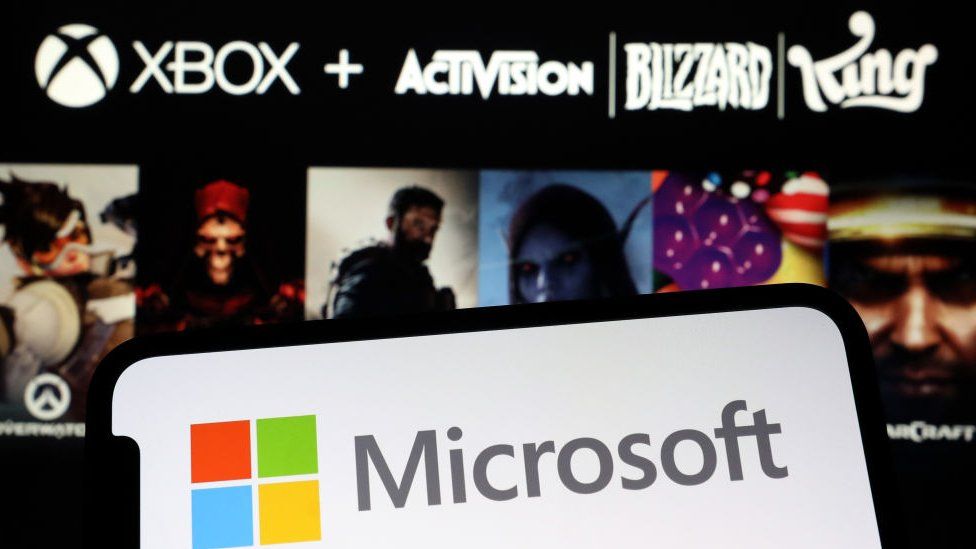Microsoft’s pursuit of Activision-Blizzard has reached a significant milestone as the near $70 billion deal moves closer to completion, becoming the largest acquisition in video game history. Despite facing opposition from the US Federal Trade Commission (FTC), their attempts to halt or block the deal have been denied by an appeals court, cementing Microsoft’s position. Nevertheless, regulators are not surrendering to defeat, as a formidable joint effort between the FTC and the Department of Justice (DOJ) is underway, aimed at making mega-mergers more challenging to accomplish.
The FTC and DOJ have jointly presented a comprehensive 51-page draft document outlining proposed new guidelines governing the legality of mergers involving giant corporations. Both agencies hold authority over regulating interstate commerce in the United States and possess the ability to prevent company mergers and acquisitions for various reasons. One of the primary justifications for intervention is safeguarding competition, as witnessed in the past when major tech mergers, like AT&T’s attempted acquisition of T-Mobile in 2011, were halted due to anticompetitive concerns. Nevertheless, technology companies have generally found favor in the eyes of American regulators, even when the executive branch is led by ostensibly progressive leaders.
The new draft document proposes a more stringent approach to regulating mergers, comprising thirteen wide-ranging guidelines that cover diverse situations in which the FTC and DOJ could take direct regulatory action or resort to legal measures. Some of these guidelines encompass familiar areas, such as “Mergers Should Not Eliminate Substantial Competition between Firms.” Meanwhile, others appear to broaden the scope of regulators, invoking authority from the historic Sherman Antitrust Act of 1890 and the Clayton Antitrust Act of 1914.
For instance, guideline number five stipulates that “Mergers Should Not Substantially Lessen Competition by Creating a Firm That Controls Products or Services That Its Rivals May Use to Compete.” This could potentially apply to cases where Google’s grip on the online search and advertising markets or Apple’s exclusivity over apps on its iPad and iPhone are called into question. Additionally, guideline number seven, “Mergers Should Not Entrench or Extend a Dominant Position,” holds relevance for such scenarios. Furthermore, guideline number nine states that “When a Merger is Part of a Series of Multiple Acquisitions, the Agencies May Examine the Whole Series,” which may have been applicable to Microsoft’s earlier efforts to secure various developers over the last decade, aiming to strengthen its first-party publishing and compete with Sony’s successful PlayStation exclusives.
In response to the updated guidelines, US Attorney General Merrick Garland emphasized the importance of curbing unchecked consolidation to protect free and fair markets, which are the backbone of the American economy. He expressed confidence that these revised Merger Guidelines address modern market realities and empower the Justice Department to transparently and effectively safeguard the American people from the adverse effects of anticompetitive mergers.
The current political landscape in the United States sees left-leaning Democratic control, with President Biden holding a slim majority in the Senate, while Republicans oversee the House of Representatives and the judiciary, including a 6-3 majority on the Supreme Court. Consequently, corporations seeking further expansion may turn to the court system as a recourse. However, this is not a guaranteed win for such entities, as legal battles over whether specific mergers violate regulatory guidelines and whether these guidelines align with century-old congressional laws can endure for months or even years, with multiple court cases and appeals.
Additionally, international challenges await larger mergers, particularly from the European Commission, known for its cautious approach towards the tech industry. The DOJ and FTC’s renewed determination to combat consolidation in the technology sector and other prominent segments of the economy will likely encounter resistance from both corporations and their supporting legislators. The ultimate success of these efforts will hinge on courtroom clashes and interpretations of the law by the justices. Furthermore, the proposed guidelines are not immutable, as the current FTC has already revised guidelines implemented during the preceding Trump administration. If Republicans gain control of the executive branch after the 2024 federal elections, it is probable that many of the recently proposed guidelines could be discarded similarly.


